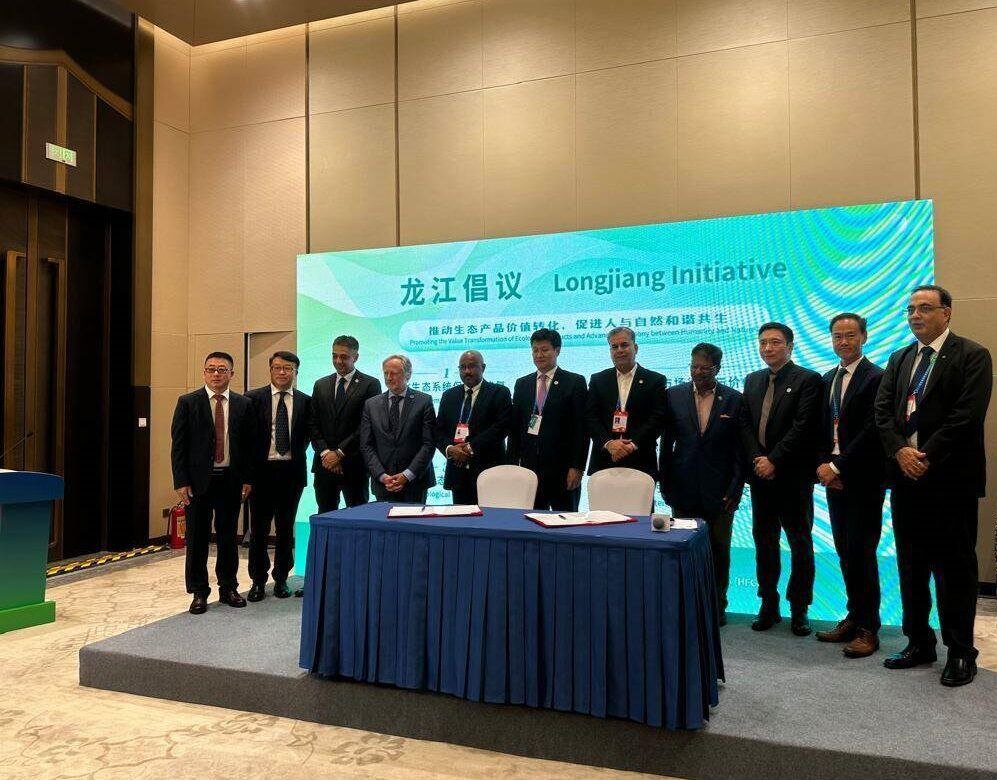DOE ready to take part in China’s Longjiang initiative

TEHRAN – The Department of Environment (DOE) has announced its preparedness to collaborate on the Longjiang initiative proposed by China, which focuses on strategic partnerships in key areas such as biodiversity conservation, ecological product development, and environmental education.
Harnessing the unique capacities of biosphere reserves, the initiative highlights the transformation of ecological values as a key strategy for linking biodiversity conservation with sustainable economic development, doe.ir quoted Hamid Zohrabi, an official with the DOE, as saying.
With the acceleration of the green transition in different countries, biosphere reserves are increasingly recognized as models for nature-based solutions, inclusive livelihoods, and sustainable markets, he added.
On the sidelines of the Fifth World Congress of Biosphere Reserves (WCBR) held in Hangzhou, China, from September 22 to 26, the United Nations Educational, Scientific, and Cultural Organization’s (UNESCO) East Asia Regional Office and the Heilongjiang Provincial Forestry and Grassland Bureau jointly held a side event on September 22nd.
Following the event, the Heilongjiang Provincial Forestry and Grassland Bureau and representatives of relevant Asia-Pacific organizations launched the Longjiang initiative, which focuses on deepening cooperation in six areas: strengthening ecosystem protection and restoration, deepening scientific monitoring and research, building an ecological brand system, expanding market channels and value chains, promoting green technology and financial innovation, and strengthening international cooperation and exchanges.
The initiative calls for joint efforts to transform intangible ecological value into a tangible force supporting high-quality development, and to contribute positively to building a community of shared future for mankind and nature, and achieving global sustainable development goals, isenlin.cn reported.
An Iranian delegation led by Shina Ansari, the head of the Department of Environment (DOE), participated in the fifth WCBR.
Held every 10 years, the World Network of Biosphere Reserves comes together to identify priorities, strengthen collaboration, and define a Global Action Plan for the future.
Addressing the fifth WCBR, Ansari voiced the country’s readiness to foster cooperation with other countries, in line with the Hangzhou Action Plan, to promote twinning between biosphere reserve sites.
“We are ready to develop a twining mechanism between biosphere reserves in Iran and other countries worldwide to further promote collaboration on research projects, sharing expertise and knowledge, as well as boosting scientific visits,” IRNA quoted Ansari as saying.
“We highlight ecosystem-based and community-centered approaches in managing biosphere reserves so that these areas can expand their impacts beyond their borders and inspire surrounding areas,” she added.
Unfortunately, “biosphere reserves in Iran are adversely affected by heat waves, water scarcity, and climate change. We need solidarity, experience exchange, and support from the World Networks of Biosphere Reserves to strengthen their resilience.
We believe that the UNESCO member states have the needed capacity to counter unilateralism and expand multilateralism to strengthen World Networks of Biosphere Reserves,” Ansari underlined.
Preserving the World Network of Biosphere Reserves, our common home, is a shared responsibility. These areas are not only sanctuaries for nature, but also symbols of the peaceful coexistence of humans and nature, and a bridge between modern science and traditional knowledge. They should become a center of hope and a sustainable future for our children, she said.
The official also elaborated on biosphere reserves in the country, saying, “Iran, with 13 biosphere reserves, including three wetland sites, two marine and coastal sites, two deserts and arid sites, and six mountainous areas, has always been among pioneering member states in the World Network of Biosphere Reserves.
Biosphere reserves cover less than four percent of our national territory, which is not enough, so we are committed to expanding the network by the establishment of four more biosphere reserves.”
MT/MG
Leave a Comment